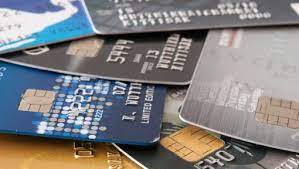Credit Cards are beneficial for getting the best financial freedom from holding cash. Credit cards offer many benefits to shoppers including convenience, security, and rewards. On the other side, however, you can get into some trouble if you develop bad habits with your credit cards. Debt is something that you accumulate through certain spending habits in your daily life. It doesn’t just happen by chance. Understanding and avoiding these habits can help you stay out of debt and improve your financial well-being. In this detailed note, we will discuss five credit card habits that can lead to financial disaster.
Choosing the Wrong Credit Card:
There are different types of credit cards available, and each has its own set of terms and conditions. Some credit cards offer rewards or cash back on purchases, while others have higher interest rates. It’s important to choose the best credit card for your needs. Otherwise, you could end up paying more in interest or fees than you would with another card. For example, if you have a rewards credit card but don’t use it to earn points, you’re essentially paying more for your purchases than you would with a regular credit card.
Delaying Payments:
Delaying in payments may seem like a minor issue, but it can have a major impact on your financial health. When you delay payments, you essentially borrow money from the credit card company and accrue interest on that balance. The longer you wait to pay off your balance, the more money you will owe in interest. Additionally, delayed payments can damage your credit score, making it more difficult to obtain loans in the future.
If you’re more than 30 days late on a credit card payment, you could be charged up to $35 in Late Fees and see an increase in your APR. Additionally, the major credit bureaus like Experian, TransUnion, and Equifax could add a mark to your report that will stay there for seven years.
Buying Things, You Can’t Afford:
Shopping can be so easy that you one day find yourself in debt because you made too many purchases without a plan to pay them off within the following billing cycle. It can be difficult to stick to a budget, but spending only what you can afford is important. If you’re not sure whether you can afford a purchase, ask yourself if you would be willing to pay for it with cash. If the answer is no, then you can’t afford it. It’s also important to remember that just because you can afford the monthly payments doesn’t mean you can afford the item. Credit cards can be tempting because they offer a way to buy now and pay later. However, if you can’t afford the full purchase price, you’re better off saving up for it instead of putting it on a credit card.
Not Reviewing Your Statement:
Your credit card statement is a valuable tool that can help you stay on top of your finances. Reviewing your statement can track your spending, identify any suspicious activity, and ensure that you are being charged the correct amount. Additionally, your statement can help you spot errors or discrepancies. If you find an error on your statement, you should contact your credit card issuer immediately. You may have forgotten about some past purchases, your payment wasn’t allocated correctly, or your credit limit has been lowered since you last checked. Therefore, it’s important to make a habit of reviewing your statement regularly because failing to review your statement could lead to late payments, overspending, and ultimately, debt.
Paying Minimum Amounts:
The minimum payment is the least amount of money you can pay on your credit card bill each month without being charged a penalty. While it seems like a good idea to only make the minimum payment, this habit can lead to more debt in the long run. When you only make the minimum payment, you are essentially paying interest on your balance. The interest charged on your balance can add up over time, making it more difficult to pay off your debt. To avoid being charged interest, you should ideally pay more than the minimum amount on your credit card bill or, at the very least, pay the amount required to Pay Off the Balance in 36 months (which is also printed on your billing statement).
Making these 5 credit card habits can get you into some serious debt trouble down the line. To avoid this, make sure you’re aware of your spending, keep track of your credit card statement, and use your credit card wisely.
